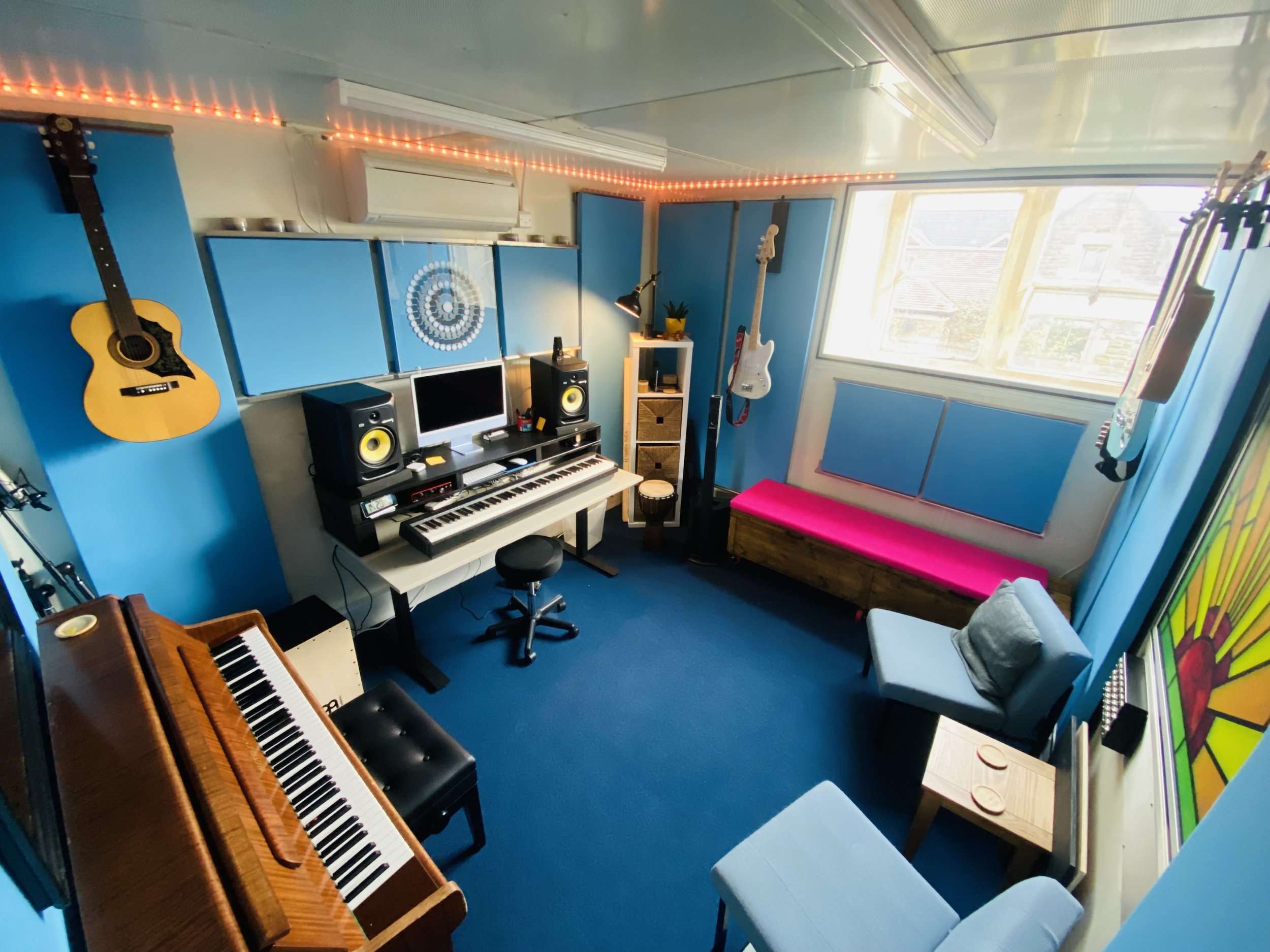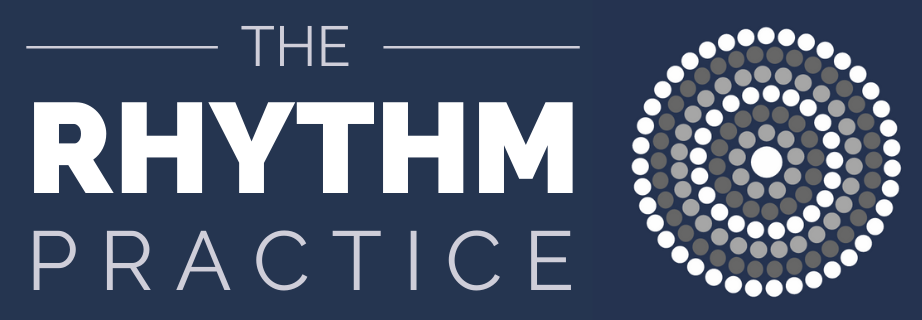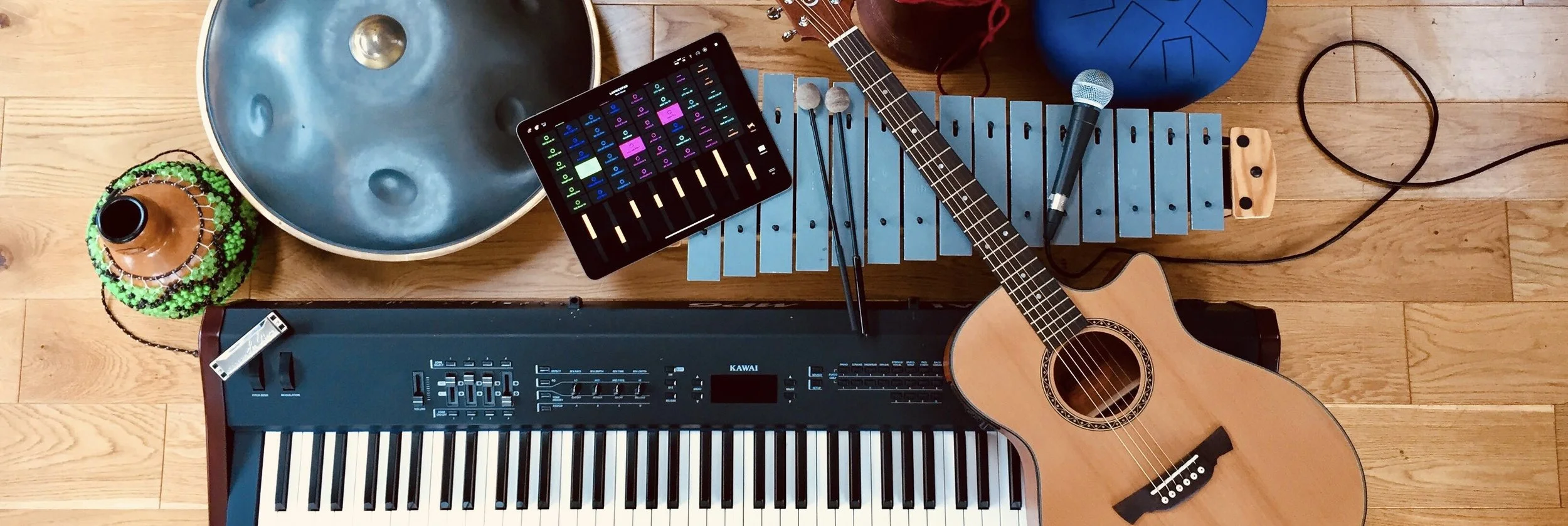What is Music Therapy?
Music therapy is a creative, arts-based psychotherapy that draws on music in its many forms to support emotional, physical, and spiritual well-being. While the therapeutic relationship between client and therapist is central, music deepens this connection through collaboration and expression. It provides a powerful way to explore emotions, process experiences, and encourage healing, growth, and self-discovery.
Who can benefit from Music Therapy?
Music therapy is for anyone open to engaging in the process. It is used across all stages of life and is particularly valuable for individuals who have not found success with other therapies. It can be especially effective in reaching those who are difficult to engage through traditional methods.
Typical referrals include:
Children and Adolescents – Those experiencing parental separation, bereavement, bullying, trauma, abuse, long-term illness, autism, or learning difficulties.
Adults – Individuals struggling with mental health challenges such as anxiety, depression, schizophrenia, or addiction, often linked to childhood trauma, abuse, bereavement, isolation, or long-term injury.
Older Adults – Those facing dementia, chronic pain, bereavement, isolation, or terminal illness.
What happens in a Music Therapy session?
The first step in music therapy is building a comfortable and trusting relationship between client and therapist. Initial sessions often involve exploring music through listening and playing, while identifying personal challenges that need support. Once therapeutic goals are established, sessions are tailored to meet these needs.
The role of music varies depending on the client and the mood of the session. It may include improvisation, listening to recordings, songwriting, singing, or simply playing together. However, music therapy is not just about music—talking often plays a central role in the process. At its core, music therapy is a form of arts-based psychotherapy, using music as a tool for emotional expression, healing, and growth.
Do you need to be able to play an instrument to benefit?
No. Music therapy is not about musical skill but about using music as a tool for expression, exploration, and healing. Most people have a natural connection to music, whether or not they play an instrument. Some may benefit from simply listening, while others enjoy experimenting with different sounds and instruments.
The music therapy room is a space for creative exploration—there is no right or wrong way to engage, and no musical experience is required. Clients often use not just music but also art and conversation as part of their therapy, finding different ways to express emotions and experiences. The goal is to build a meaningful connection between therapist and client, creating a safe, judgment-free space where healing and self-discovery can take place. If learning an instrument aligns with your therapeutic goals, this can also be incorporated into sessions.
Where do the sessions take place?
The Rhythm Practice operates from two studios within The Pound Arts Centre. Whilst both are equipped with a wide range of instruments, the Blue Room is specially designed to be fully accessible for individuals with disabilities and wheelchair users.
Beyond our work at The Pound, we offer outreach services in various settings, including mainstream and special needs schools, private homes, hospitals, prisons, and community mental health facilities. We provide support across a broad area, covering Bath, Bristol, Swindon, and most of Wiltshire, Somerset, and Gloucestershire
Do you use music technology?
Yes, we embrace music technology in all its forms. It's easy to overlook that every instrument is a product of technological innovation—whether it's the piano, an incredible feat of 18th-century engineering, the harmonica from the 19th century, the synthesizer revolution of the 20th century, or the iPad, a powerful musical tool of the 21st century.
At The Rhythm Practice, we view all instruments—acoustic, electronic, or digital—as tools for personal expression. In the therapy room, there is no right or wrong way to engage with music, just as there is no "good" or "bad" music. Our studio is equipped with state-of-the-art recording technology, allowing music created during sessions to be captured and shared beyond the therapy room if this is beneficial to the therapeutic process.
How much do sessions cost?
Session costs vary based on several factors. Each therapist sets their own rates, so prices are not published on the website. The cost of therapy also depends on the route of referral, how the therapy is funded, and the level of additional support required—such as reports, multidisciplinary team meetings, support sessions, travel time, and mileage.
If you would like to discuss fees, please email us with any questions or submit a referral form. We will respond with details on availability and associated costs.
How does confidentiality work in therapy?
Sessions are private and confidential. Our therapists adhere to the Health and Care Professions Council (HCPC) Code of Ethics and Conduct and are legally required to receive regular clinical supervision. During supervision, casework may be discussed confidentially to ensure the highest standards of care.
However, we also have a duty of care to our clients. If we believe that a client or someone else is at risk of harm based on information shared in a session, we may need to raise this as a safeguarding concern in accordance with legal and ethical guidelines. To ensure appropriate safeguarding, we collect details of the referring organisation or individual, next of kin, and GP during the referral process.
Our designated safeguarding leads are Will Lawton and Emma Hughes. If you have any concerns or questions about safeguarding, you are welcome to contact them directly—email addresses can be found in the "About" section of our website
What Is Music Therapy? A video created by The British Association of Music Therapy (BAMT).



